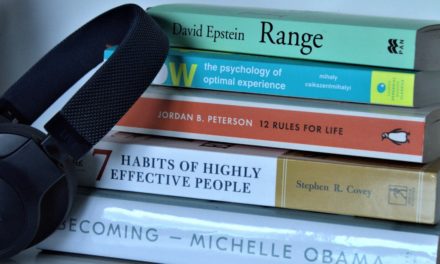Negative beliefs lead to numerous issues in everyday life. For me, occasional negative beliefs reduce my confidence, ability to think rationally, and overall negative thinking that I do not particularly enjoy. A recently read book by Martin Seligman called Learned Optimism speaks of a strategy I have found incredibly effective, and I have used it extensively in the last few months. This book will explain the use of this technique, and hopefully, it will help reduce the influence of negative beliefs on your life.
First, you need to understand the meaning of ABCs. A stands for adversity, B stands for belief, and C stands for consequences. Adversity explains something bad that occurs to you, and the beliefs are how you interpret adversity. Consequences are the actions of feelings that follow a belief. If you experience adversity and have negative beliefs about it, the consequences will most likely impair your well-being. For example, I recently felt down that I was not able to make many friends at university. One belief I could have had about this situation is that I would never make friends. A possible consequence of this belief is that I believed I would not make any friends no matter what I did. As you can see, my negative belief of the situation prevented me from successfully making friends by causing the belief that I had no control over the situation. Instead, suppose I changed the belief to the fact that it is during covid and I am currently studying university remotely. In that case, the difficulty of the situation stops me from thinking I am incapable of making friends. I then tried to reach out to more people and ended up making a great friend. Since I had a positive interpretation of the adversity, I made a friend instead of remaining depressed and in a state where I believed no one could be my friend. It is a good idea to keep a list of up to 5 ABCs each day to look at the trends of how you interpret situations.
Now, there are two main ways to deal with pessimistic beliefs. The first one is a distraction. A strategy some people use is to have a reminder to STOP thinking about negative beliefs. Some people snap a rubber band on their arm, pinch themselves, and carry cards around with big red-lettered STOP on them. You can honestly use any reminder to prevent the focus on negative beliefs. This is typically paired with the direction of attention to something else. Concentrating on something else will help you divert your attention away from the pessimistic attitudes of the subject. Some people schedule time later in the day or week to deal with the negative thoughts and emotions that arise from them. This gives you time to cool off a bit which will reduce the strength of the negative thoughts and prevent it from impacting you at that moment. This does not generally work for me, but it may be effective for you. You can also write down troublesome thoughts on a piece of paper or journal. The act of writing down may help reduce the influence of these beliefs on you and help dispose of them somewhere else. Some other distraction strategies I may utilize could be watching television, reading, doing exercise, speaking with friends, helping others, playing with dogs, and sometimes videogames.
The second way to deal with negative beliefs is by disputing them. Four techniques can be used to argue with yourself to deescalate negative beliefs. The most convincing way of contradicting your beliefs is to use evidence to prove that they are factually incorrect. For the negative belief about me not making friends, a good source of evidence against that are the caring friends and family members that surround me. Another being that I did not try hard enough to make friends in the first place. The second technique is looking at alternatives. This comes from the idea that there are numerous reasons why events happen. Negative beliefs tend to come from the worst possible cause. For example, if someone fails a test, they could latch onto the idea that they are stupid instead of thinking that they did not study enough for the test. You should focus on the changeable (did not study enough), specific (this exam was hard), and nonpersonal (the teacher graded unfairly) causes if you want this strategy to be most effective.
The next technique comes about when your negative belief is correct, and you must look at the implications of this belief and prevent yourself from catastrophizing. If the belief is true, is it awful enough to destroy your life? How likely are the terrible implications you had in mind? In the friendship example, I thought I would never be able to make friends. Is it true that my inability to make friends in a short period during a pandemic indicates that I cannot make friends and will never make friends ever? No, obviously not. The final technique is looking at the usefulness of the belief. Is dwelling on your belief worth your time? Is it functional for you to think of this belief right now? Instead, schedule a time to dwell on your beliefs at a different time. Another way to utilize this strategy is to prevent the belief or adversity from happening in the future. Think about how you can change the situation so that it will not faze you if it were to happen again. If I were working on a project and felt terrible about something that happened the previous day, I would acknowledge that it was not useful to the project and would assign a time to deal with it later. Then, I would take the initiative to prevent the situation’s influence or the situation itself from bothering me to the extent it did.
The most valuable thing you can do is take these four methods in the disputation category together to help you reason with yourself about the absurdity of your negative beliefs and the need to dwell on them extensively. Pairing it with some distraction strategies will give you the most out of all these techniques. I would recommend using these strategies in unison as they have helped me reduce the number of negative beliefs to prevent them from significantly affecting my life. I am also more resilient when I have negative beliefs, which allow me to retain well-being and be productive in my life. It is critical to changing your mental responses to negativity and will lead to the benefit of your mindset, brain and body.If you want to read more into the subject, I would recommend reading Learned Optimism from Martin Seligman or looking at this blog by effective living called “The ABCs of Fostering Optimism,” which dives further into the subject.





